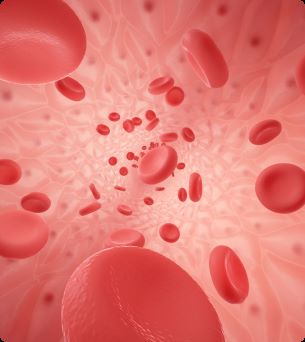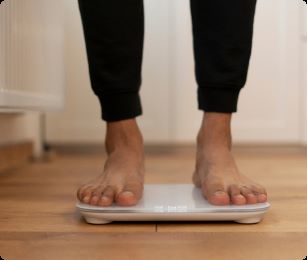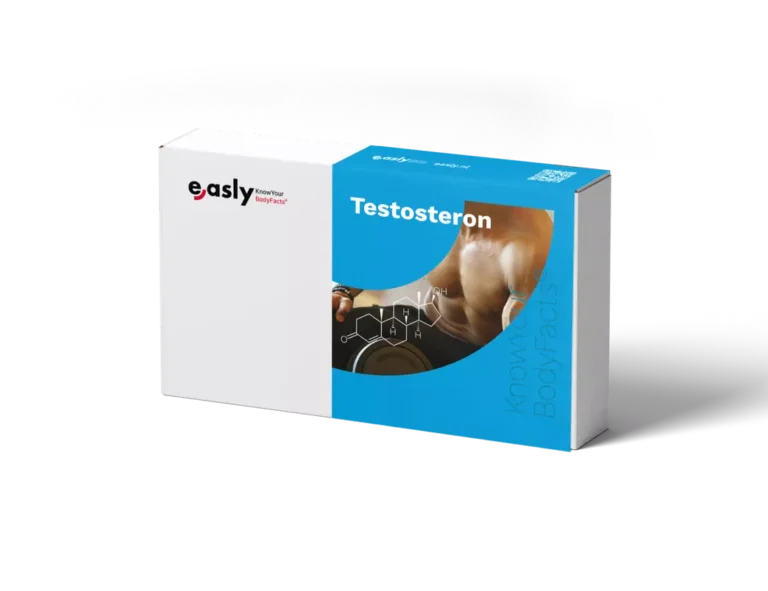Testosterone, known as the male sex hormone, is responsible for male physical characteristics and influences libido and vocal depth. However, testosterone serves various functions, playing a crucial role in the female body as well. In the natural aging process, testosterone production gradually declines in men, potentially leading to symptoms of testosterone deficiency. Other factors can also contribute to a testosterone shortage and associated symptoms. Interested in understanding the signs and causes of testosterone deficiency, determining your testosterone levels, and, most importantly, discovering ways to maintain optimal testosterone levels? Read on for more information about this vital hormone.

What is testosterone?
Testosterone, known as the male sex hormone, is primarily produced in the testicles in men and, to a lesser extent, in the ovaries in women. This vital hormone is responsible for male characteristics, such as a deeper voice, facial and body hair, and muscle mass. Moreover, testosterone plays a crucial role in regulating sexual functions like libido and the ability to achieve an erection. It also contributes to red blood cell production.


While testosterone is commonly associated with male traits, it is equally important for women’s health, although the quantity is significantly lower. In women, testosterone regulates the menstrual cycle and can impact aspects such as muscle mass, bone density, and sexual desire.
How do you know if you have low testosterone?
A testosterone deficiency can have various consequences, differing from person to person based on the severity of the deficiency. Common effects of low testosterone include:
- Reduced libido: Decreased sexual desire is a prevalent symptom in both men and women with a testosterone deficiency.
- Erectile dysfunction: In men, a shortage of testosterone can make it more challenging to achieve and maintain an erection.
- Fatigue: Low testosterone levels can lead to fatigue and a lack of energy.
- Loss of muscle mass and strength: Testosterone plays a crucial role in building and maintaining muscle mass, and a deficiency may result in decreased muscle strength and mass.
- Increase in body fat: Low testosterone may contribute to weight gain and alterations in fat distribution, leading to more abdominal fat.
- Decreased bone density: Reduced testosterone levels can result in lower bone density and an increased risk of osteoporosis, especially in older men.
- Emotional and mental issues: Testosterone deficiency may cause mood swings, depression, irritability, and reduced concentration.
- Decreased fertility: In men, low testosterone can lead to reduced sperm cell production and fertility.




Curious about your testosterone levels? Easily test at home with the Easly testosterone test. If you experience symptoms associated with testosterone deficiency, consult your (family) doctor before self-diagnosing.
What causes testosterone deficiency?
While it’s well-known that women experience hormonal fluctuations throughout their lives, it’s less recognized that men also undergo hormonal changes. Testosterone production naturally decreases in men as they age, starting around 35-40, with a 65% average reduction by age 70 compared to young men.

Other factors contribute to testosterone deficiency. Obesity is significant, as excess body fat can accelerate the decline in testosterone production. Smoking can also lower testosterone levels, as certain chemicals in cigarettes harm the testicles and disrupt hormone production. High blood pressure and diabetes can expedite testosterone reduction.



Beyond general causes, testosterone deficiency can result from specific conditions like the congenital Klinefelter syndrome, where men have an extra X chromosome, and disorders affecting the hypothalamus or pituitary gland, controlling testicular hormone production. Surgical procedures on the testicles or undescended testicles can also lead to testosterone deficiency.
Consult a doctor if experiencing symptoms of testosterone deficiency, as the underlying cause varies, and an accurate diagnosis is crucial for appropriate treatment.
Related tests



How do I increase my testosterone?
To maintain healthy testosterone levels, adopt a healthy lifestyle to prevent a decline. Key factors for sustaining healthy testosterone levels include:

- Adequate sleep: Good sleep is crucial for hormone balance, including maintaining healthy testosterone levels.
- Quit smoking: Nicotine in cigarettes can reduce testosterone production, and smoking increases the risk of erection problems and negatively affects sperm quality.
- Strength training and exercise: Regular exercise, especially strength training, can help increase testosterone levels.
- Healthy diet: A balanced diet with sufficient healthy (unsaturated) fats contributes to maintaining a healthy testosterone level.
- Limit alcohol consumption: Excessive alcohol intake can lead to a decrease in testosterone production.
Stress management: Stress can negatively impact hormone balance.




In cases of proven testosterone deficiency, as demonstrated in a blood test, testosterone supplementation may be considered. Testosterone supplementation is available in the form of tablets, injections, or gel. However, it’s crucial to do this under strict medical guidance, as testosterone supplementation can potentially have side effects. Never start testosterone supplementation without consulting a doctor for expert advice.
Conclusion
Testosterone is an essential hormone in both male and female bodies, serving multiple crucial functions. In men, testosterone decreases as part of the natural aging process, potentially leading to symptoms of testosterone deficiency. These symptoms may include reduced libido, decreased strength, and mood changes. You can measure testosterone levels in the blood, such as with the Easly testosterone test. However, it’s important to note that we always recommend consulting your doctor first if you experience symptoms before conducting self-exploration.








